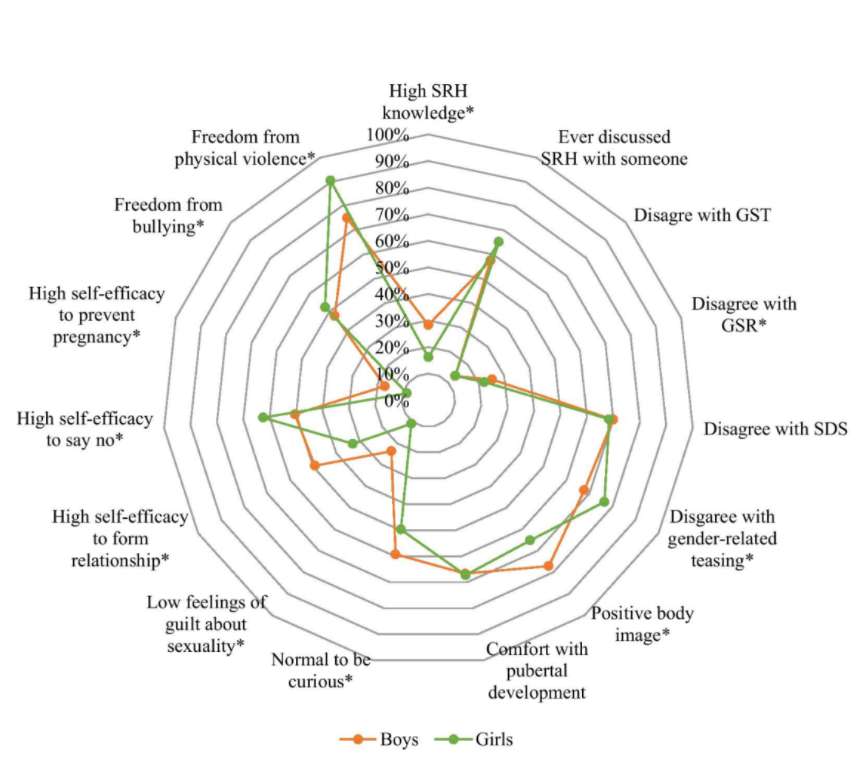Related
Read our latest articles, studies and columns on sexual health and rights.
Key findings from new research by the Explore For Action team show comprehensive sexuality education supports sexual wellbeing in very young adolescents in Indonesia.

During very early adolescence, from 10 to 14 years old, children go through the life-changing phenomenon of puberty. Apart from the physical changes that happen, boys and girls also start to cement down ideas on how the world should work and their role in it. This is a critical time to influence the norms and values on sex and sexual relations that they will grow to hold firm. Yet, there has been surprisingly little research done on exactly how the formation of sexual wellbeing happens. New research published by the Explore for Action team goes some way to address this knowledge gap.
It asks: what does sexual wellbeing in early adolescence entail?
Using data from over 4,000 young Indonesians who took part in the Global Early Adolescence Study funded by the Gates Foundation, the team analysed sexual wellbeing from a broad perspective. It included questions on gender attitudes, sexual literacy, comfort with pubertal development, and understanding consent.
Key findings from this research showed that; while young adolescents in Indonesia score high on some aspects of sexual wellbeing, misconceptions, feelings of guilt and uncertainties related to sexuality are common, with clear gender differences.
The results confirm both the importance and complexity of measuring sexual wellbeing in adolescence, given that it is among the first to explore this aspect of life within one of the youngest age groups in a low-income country.
Furthermore, the findings call for interventions that target adolescents, as well as their broader social contexts (including parents, teachers and community members). It recommends that existing policies should do more to address restrictive and discriminatory norms related to gender, power and sexuality, especially in very young people.
In this respect, Comprehensive Sexuality Education (CSE) can play an important role to support adolescent sexual wellbeing by providing evidence-based, contextually and developmentally-appropriate information across different time points.
Lead author Anna Kagestan, adds: “the research shows that early adolescence is a key [age group] when designing CSE interventions.” She hopes that “it provides the needed momentum for the international public health domain to steer away from danger approaches, towards positive interventions focused on strengthening adolescents’ agency to improve their sexual wellbeing.”
With this research, NGOs can further advocate for more programming that focuses on meeting the evidenced need for robust Comprehensive Sexuality Education targeted specifically at very young adolescents.
Read the full article published in the BMC Reproductive Health journal.Read our latest articles, studies and columns on sexual health and rights.
Uw browser (Internet Explorer 11) is verouderd en wordt niet meer ondersteund. Hierdoor werkt deze website mogelijk niet juist. Installeer Google Chrome of update uw browser voor meer internetveiligheid en een beter weergave.